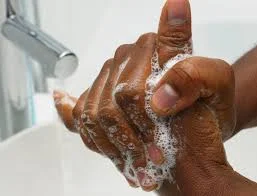According to Hethir Rodriguez, a renowed researcher with Natural Infertility, low
sperm count and infertility in men is more prevalent than most couples
think. People tend to think that if a woman is not getting pregnant the
fertility issue must be with the woman, but that is not necessarily always the
case. There is an equal chance that male factor infertility can be the cause of
a couple’s difficulty in achieving pregnancy. While women have many tests to
try to find out the cause of infertility, men have only a couple, the sperm
analysis being the easiest.
If you have been trying to get pregnant for more than a year, make sure that both of you go and get fertility test. There are at-home sperm count tests available in stores, or you can have a complete semen analysis performed at your doctor’s office.
The results of a good test would be a sperm count of 20 million or more sperm with healthy motility and morphology. Suboptimal levels are less than 20 million sperm. If you find that your sperm levels are low or are having issues with mobility, motility or morphology, it is necessary to consider some natural therapies you can use to help improve sperm count and health.
There are many potential causes of low sperm count and male infertility. Fortunately, we have control over many of them by reducing their exposure.
Here is a list of the top culprits:
If you have been trying to get pregnant for more than a year, make sure that both of you go and get fertility test. There are at-home sperm count tests available in stores, or you can have a complete semen analysis performed at your doctor’s office.
The results of a good test would be a sperm count of 20 million or more sperm with healthy motility and morphology. Suboptimal levels are less than 20 million sperm. If you find that your sperm levels are low or are having issues with mobility, motility or morphology, it is necessary to consider some natural therapies you can use to help improve sperm count and health.
There are many potential causes of low sperm count and male infertility. Fortunately, we have control over many of them by reducing their exposure.
Here is a list of the top culprits:
- EMF’s – Electromagnetic frequencies (EMF’s) have been shown through studies to lower sperm count due to the heating of the testicles from the EMF’s. Do not keep your cell phone in your pocket and do not place your laptop computer on your lap.
- Radio frequency electromagnetic waves (RF-EMW) – A study performed in 2011 (Fert. Ster. 1/2012) showed that RF-EMWs emitted from devices connected to Wi-Fi (wireless internet) decrease sperm motility, while increasing sperm DNA fragmentation. Men should avoid using laptop computers running on a Wi-Fi connection directly on their lap. In addition, be sure to avoid carrying a smart phone in your front pocket.
- Cigarette smoking – Smoking damages the sperm. Period. The good news is the damage done from smoking can be reversed as long as you quit smoking.
- Pesticides and hormones in foods – The pesticides found on produce and the hormones added to dairy and meat have a HUGE effect on a man’s hormonal balance. Pesticides mimic estrogens in the body while the added hormones in meat and dairy are actual hormones (like estrogen) you do not want in your system.
- Soy foods – Highly processed soy foods (soy milk, TVP, soy burgers, etc.) contain concentrated amounts of isoflavones, a type of phytoestrogen shown to block estrogen receptor sites that are needed for testosterone.
- Alcohol– In a study of men with poor sperm quality, excessive alcohol consumption was associated with a decrease in the number of normal sperm.
- Plastics – When plastics are heated they release xenohormones which mimic estrogen in the body.
- Hyperthermia (overheating) – The testicles need to keep the sperm at a healthy temperature (which is less then the body’s temperature). It is thought that this may be in part why the male reproductive organs are external. Heat is known to damage sperm, so it may be best to avoid repeated exposure to activities that may elevate the temperature of the testicles. Examples are frequent use of saunas or hot tubs. In addition, tight underwear like briefs can keep the testicles from being able to hang and regulate their temperature. Boxers could be an alternative to briefs.
- Stress – Stress can have a big impact on hormone balance which can in turn have an affect on sperm production...
- (TO BE CONTINUED NEXT WEEK)
- For effective herbal cure for male infertility, call or sms +2347031040178.



























